

What makes a true bodybuilder? With all the Instagram and Facebook gurus, how does one determine who is real and who is just popular? It’s important to pay close attention to people’s experience and credibility when choosing who to follow and take advice from.
If you’re wanting to be a true natural bodybuilder, take some given advice from someone who has success doing so. I am a PNBA Pro with over 40 years of experience in weight training and bodybuilding competitions.
A true bodybuilder is someone who sees their body as a sculpture to be refined and shaped. Made better over time with constant refinement, never completely satisfied, believing that the “product” can always be a little better. Like steel forged in a fire to make a fine sword or a piece of coal compressed in the earth and made into a diamond, always striving for perfection but not quite achieving it.
A true bodybuilder enjoys every aspect of the grind from mindset, to the workouts, and dieting.
A true bodybuilder has skin in the game, meaning he or she has experience in competition and knows what it’s like to step on stage. A true bodybuilder finds a way to show up and work out when he or she is 3 weeks out from the show, rather you are carb depleted with no energy or feeling terrible.
True bodybuilding is 24/7/365. This means you are choosing to eat a certain way all year round. It means you are planning your workouts year-round and breaking them down into segments for off-season and contest prep. Everyone’s fitness journey is different but I believe dedication is what we all have in common. It’s a universal experience like no other.
My lifelong journey as a true bodybuilder started with my first competition in 1985 at 19. I had 2 days to prepare. Yes, that’s correct. I said 2 days. Needless to say, my contest prep was very lacking. I still managed a 4th place finish and was undeterred. I was hooked and my career was off and running. I knew nothing about dieting, tanning prep, contest prep, carb depleting, carb loading, water manipulation, or training leading up to a show. However, if you had asked me if I was a bodybuilder, my answer at the time would have been yes.
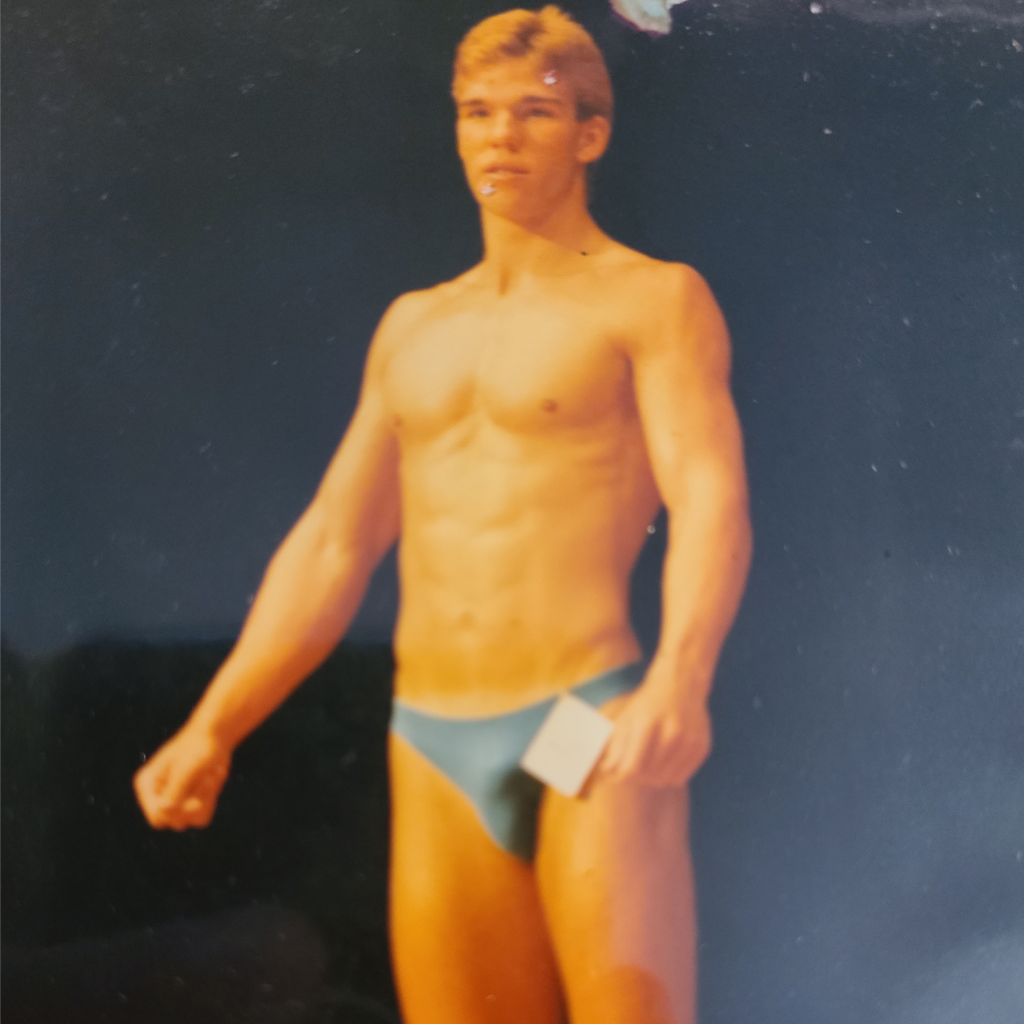
After that first show, I realized I needed to prepare and plan if I wanted to improve. I also needed to spend more time in the gym to improve my physique. As I did more shows and spent more time in the gym, my physique improved and so did my placings. I learned about dieting, training and most importantly, I learned about staying consistent all around.
Being young and having a fast metabolism, I tended to focus more on the workout and less on my diet. I was being consistent with my workouts but I still wasn’t eating to make progress year-round. As I got older, I started to realize that nutrition is the key to almost everything, regardless of what your fitness goals are. Ask any pro and they will tell you that the hardest part of bodybuilding is eating right. It will make or break your success. It’s important to eat right consistently to see the true compounded effects. Once you are committed to being consistent about doing the workouts and eating right, then you can consider competing.
So how does someone decide they are ready to compete? It’s important when deciding to compete that you take an accurate assessment of your physique and your conditioning. Do you have enough muscle to be competitive in the class you chose? Can you get lean enough? What is your macro maintenance level? For me, I always start with a show I want to do and then work back to a beginning date for show prep.
Below are the 4 phases that I break my workouts into leading to a show:
Phase 1: Off-season training. This phase is where I focus on overall growth and improvements of weak areas. This phase can last anywhere from 3-6 months for me depending on the contest schedule. During this phase, my training is usually 3-4 days a week and I am typically eating 200 – 300 calories over maintenance. This allows me to add lean muscle without gaining a lot of unwanted fat. As an older bodybuilder, losing body fat gets harder every year so staying lean helps make it easier come showtime. I am also focused on progressive overload keeping reps around 6 – 10 per set.
Phase 2: Transition. This phase usually lasts 4 – 6 weeks depending on conditioning. During the transition, I am preparing for the run-up to the contest. My training is 4 days a week using an upper/lower, upper/lower split. My training days are typically Monday, Wednesday, Friday, and Saturday.
Monday and Friday would be upper body and Wednesday and Saturday would be lower body. During this time, I increase my training volume slightly but also focus on keeping my strength up. My reps per set are anywhere between 6 and 15 reps and maybe as high as 20 on certain exercises.
My nutrition has also shifted more as I start eating right at maintenance every day based on calories burned. For those of you wondering how I arrive at that, I have my body fat checked which also gives me my BMR (basal metabolic rate). I also track my caloric expenditure for my daily workout and activities.
Phase 3: Full-blown contest training and prep. I usually start this phase about 8 – 10 weeks out.
This phase is all about cutting as much fat as possible while at the same time maintaining as much muscle as possible. I am now training 6 days a week using a push/pull/legs split. I would take Sundays off to rest and recover.
Sundays are also very low carb and calorie days for me during prep. I also typically start a carb rotation at this point with 2 high carb days, 4 moderately low carb days, and 1 really low carb day (Sunday) which is designed to put me in a calorie deficit. I watch my progress and adjust about every 4 weeks either increasing cardio, decreasing carbs, or decreasing overall calories.
Being an older athlete (55), I focus on quality rest, quality workouts, and consistent eating. I also worry about overtraining and injury. Training hard and heavy is important, but an injury will put you on the sidelines and ruin all your hard work. Knowing your limits is important if you want to make it to the show. I have seen lots of great physiques never make it to the stage because they didn’t listen to their bodies or pay attention to warning signs. You know yourself the best and when to push, when to back off and when to rest and recover.
Another important aspect of contest prep is mental. My mindset is crucial to my success. During this time, I focus my mind on the goal and the task at hand. I would argue that the ability to stay laser-focused on the goal is the number one thing a bodybuilder needs to have to carry them through. Here’s why…
Conditioning is not linear. As I move through my prep, some days I look and feel good, and I am making progress. Other days maybe not so much. Understanding this is key. Bodybuilding is very repetitive, meaning I am doing the same thing over and over day in and day out. Eating, sleeping, working out, etc…As a business owner, son, husband, father, and grandfather, I have many responsibilities and distractions. My success largely depends on my ability to stay disciplined in these areas and a focused mind is the only way to achieve this. The other mental side of this is seeing myself as a champion. I must believe I can stand on stage as the winner. Every pose I practice is the winning shot.
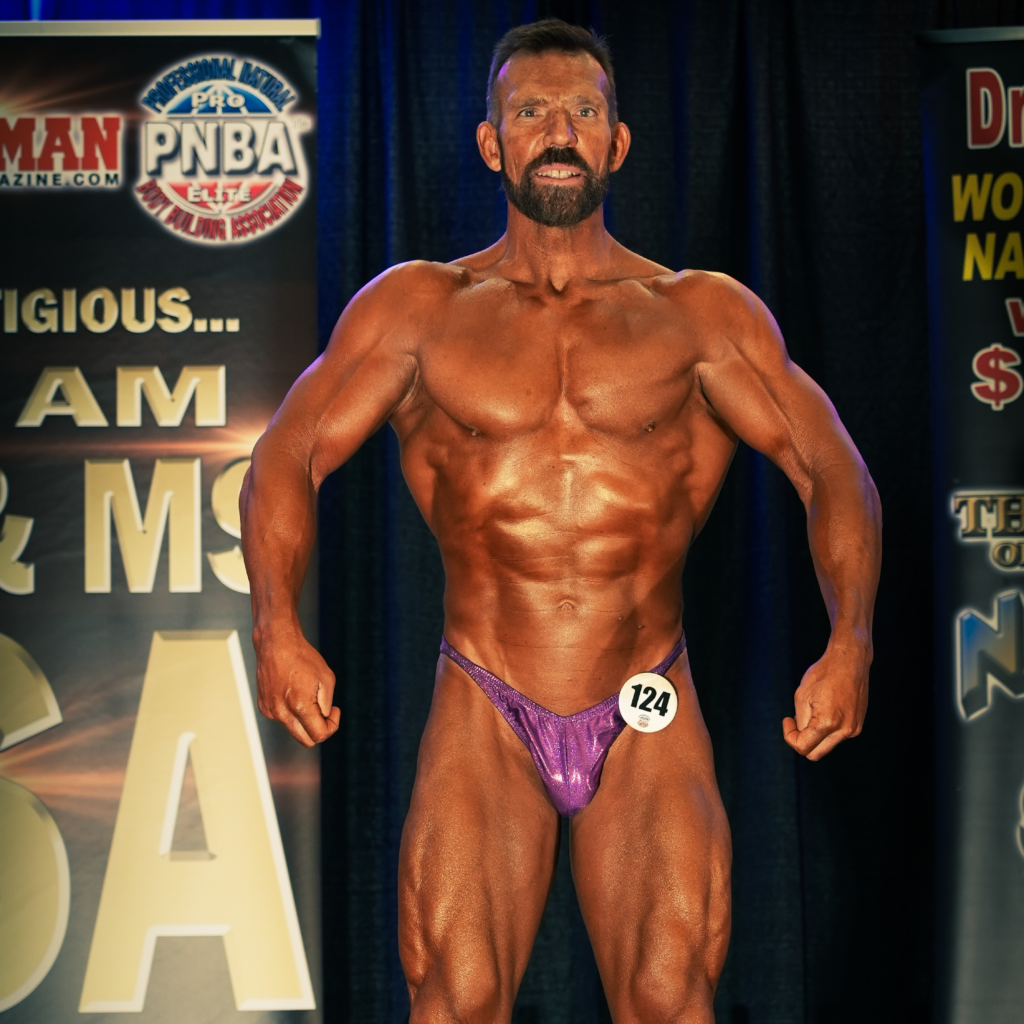
As contest day approaches, it’s extremely important to “trust the process”. You should have a plan and you should follow that plan. That said, you must also be able to adjust on the fly as needed. Posing every day during this time will help you see if you are on track. It’s vitally important that you record everything. Track your workouts, record how much weight and how many reps you do on each set. Track your calories. Record your macros (protein, fats, carbs).
You should know how many sets and reps you are doing or plan to do. Review your last workout for those muscles and see what you did and how you felt. If you’re feeling good, you may press on and try to advance the cause. If you’re maybe not 100%, you might start the workout and see how your body responds and possibly make adjustments in the number of sets or reps or weight accordingly. Remember, at this point, I am in contest prep mode, so the goal is to get the best workout possible but still avoid injury or over-training.
Now it’s contest week. The travel plans have been made. The entry fee has been paid. It’s time for finishing touches. To create the ultra-lean look, I like to use a carb deplete and water load. Then I drastically reduce water the last 12 – 18 hours before the show while at the same time increasing carbs slowly over the last 24 – 30 hours before stepping on stage. This is a tricky process and can easily be screwed up. Knowing the way my body reacts is crucial to success. Done correctly, the results are dramatic. The leaner I am, the better the results.
On contest day, all the work has been done so it’s time to relax and have fun! I get to show off all my hard work! It’s important to remember that judging is subjective and is someone’s opinion.
I can’t control who shows up or what someone thinks on a given day. As long as I have done my best and improved from the last show, then I have won. Hopefully, everything comes together, and I take home the win!
After the show, it’s time for the last phase.
Phase 4: Active recovery. If there is not another contest nearing, then it’s time to reverse my diet and slowly ease me out of competition condition. I allow myself anything I want to eat for 24 – 36 hours then it’s time to slowly start adjusting calories back up to either maintenance or even off-season. This is important to allow my body to adjust slowly and not put on unnecessary fat. Also during this time, I will take a few days off from the gym and then start back with a very light, high rep, total body exercise program. By doing this, my body has a chance to adjust back to its normal state. Trust me when I say that ultra-conditioning for bodybuilding is not “normal” and cannot be maintained for extended periods.
So, are you a true bodybuilder? This is just one man’s opinion, but I hope I helped answer the question and maybe inspired some of you to take the plunge and step on stage. It is a once-in-a-lifetime experience and may even lead you to challenge yourself in ways you never thought possible. I know it has done that for me.
Chris Moore
Professional Masters Bodybuilder (PNBA)
Gym Owner
Trainer






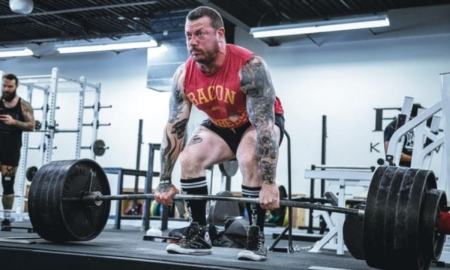
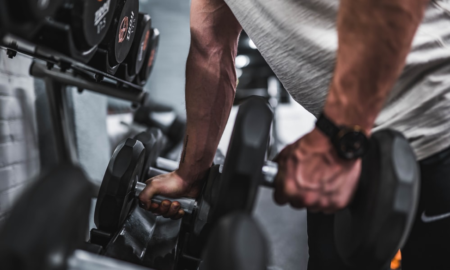





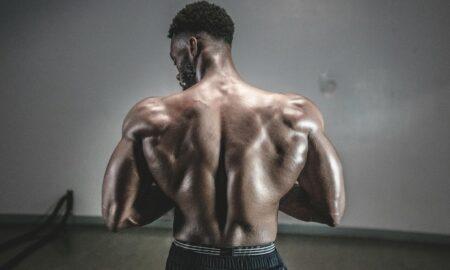






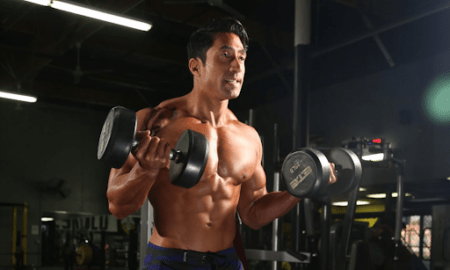
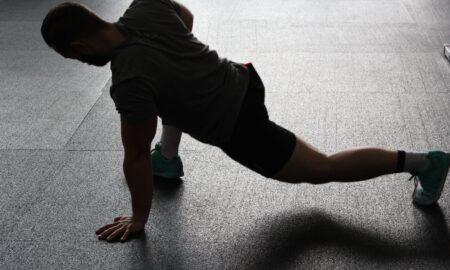
You must be logged in to post a comment Login